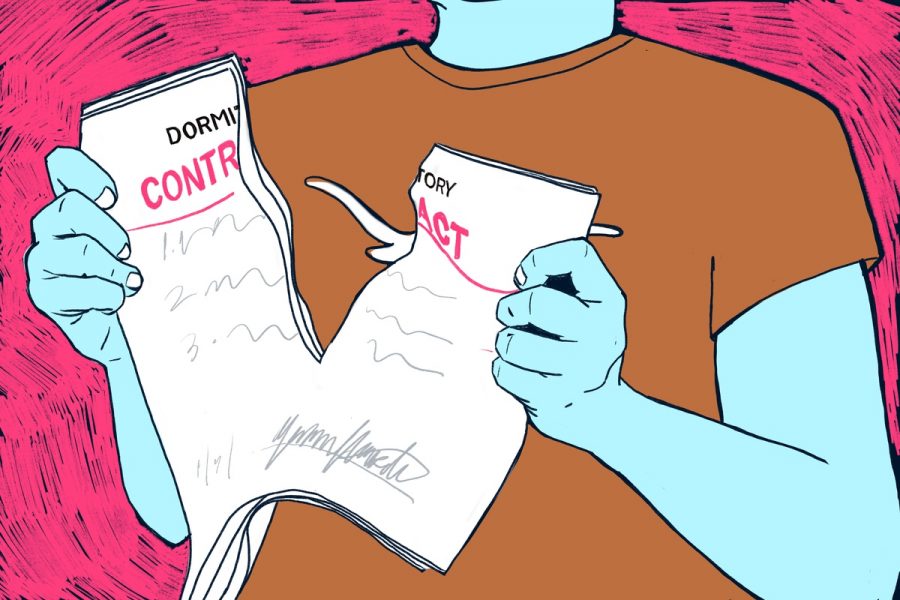Allow students to terminate housing contract for any emergency
November 4, 2021
Many students opt to live in a residential dorm hall during their first few years of college. It can be a great way to adjust to college life, learn to live independently and meet new friends. However, students may find themselves in situations where sudden changes make living and paying for a dorm impossible and subsequently need to move out in the middle of the term year.
Unfortunately, if this is after the start of the housing contract and they don’t meet the very specific termination requirements, students are stuck for the entire year of the contract period.
UT needs to allow students out of their housing contracts after the start of the contract period, regardless if they meet their housing contract’s specific contract termination requirements. Currently, the only exemptions of a contract release include academic internships causing a student to leave campus, withdrawing from UT and graduating the next semester. However, any students who demonstrate a sudden financial instability or health emergency should be released from contract, and the terms need to be updated to reflect this.
The events of COVID-19 altered the lives of many students. The pandemic has made students’ financial situations, as well as physical and mental health, subject to sudden change.
When these unexpected circumstances arise, UT should not make a student’s circumstance harder by not releasing them from a housing contract.
“I had a few scholarships, and thought they would apply for housing, so I signed up for the year long contract, but for next semester, it doesn’t apply at all,” undeclared freshman Jose Diaz explained. “I’m going to have to pay a lot more, and I don’t think my family can afford that… things change, situations change, there’s different circumstances where people won’t be able to afford housing and I think (housing) should be flexible on this.”
Assistant Director for Residence Life for Housing and Dining Justin Jaskowiak provided insight into contract release.
“For students who do not meet that criteria (listed in the housing contract), we need to know more about the circumstances that’s going on,” Jaskowiak said. “We will review those on a case by case basis and ask for any supporting documentation when needed. And then we notify (students) on a decision once they do that.”
If students are struggling with on-campus living or have an unexpected circumstance arise during the term year and need to leave, the process to request a release should not be strenuous. While students did agree to the terms and agreements listed in the housing contract, things happen, and UT needs to be understanding of that.
Jaskowiak also explained that if you do not meet the criteria, there is still a chance that your contract could be canceled.
“You still can submit the information to us and we’ll review it. It doesn’t mean a student can’t inform us of a circumstance that’s going on,” Jaskowaik explained. “Even after we make a decision, a student has the opportunity to appeal that decision that goes to an independent Residence Hall Contract release appeals committee and we’ll make a final decision on the student’s appeal.”
Although it’s comforting to know that there is an appeal process that takes students’ situations into account, other public Texas universities like Texas Tech make it easy for students to cancel and be released from their housing contracts after the start of the term date. They do not require an appeal or case by case process, and UT should do the same for the sake of its students. After all, there is no guarantee of a contract release from an appeal.
If UT truly wants to show that it values student satisfaction, amending the UHD housing contract is a great way to show it.
Del Toro is a philosophy sophomore from Round Rock, Texas.












